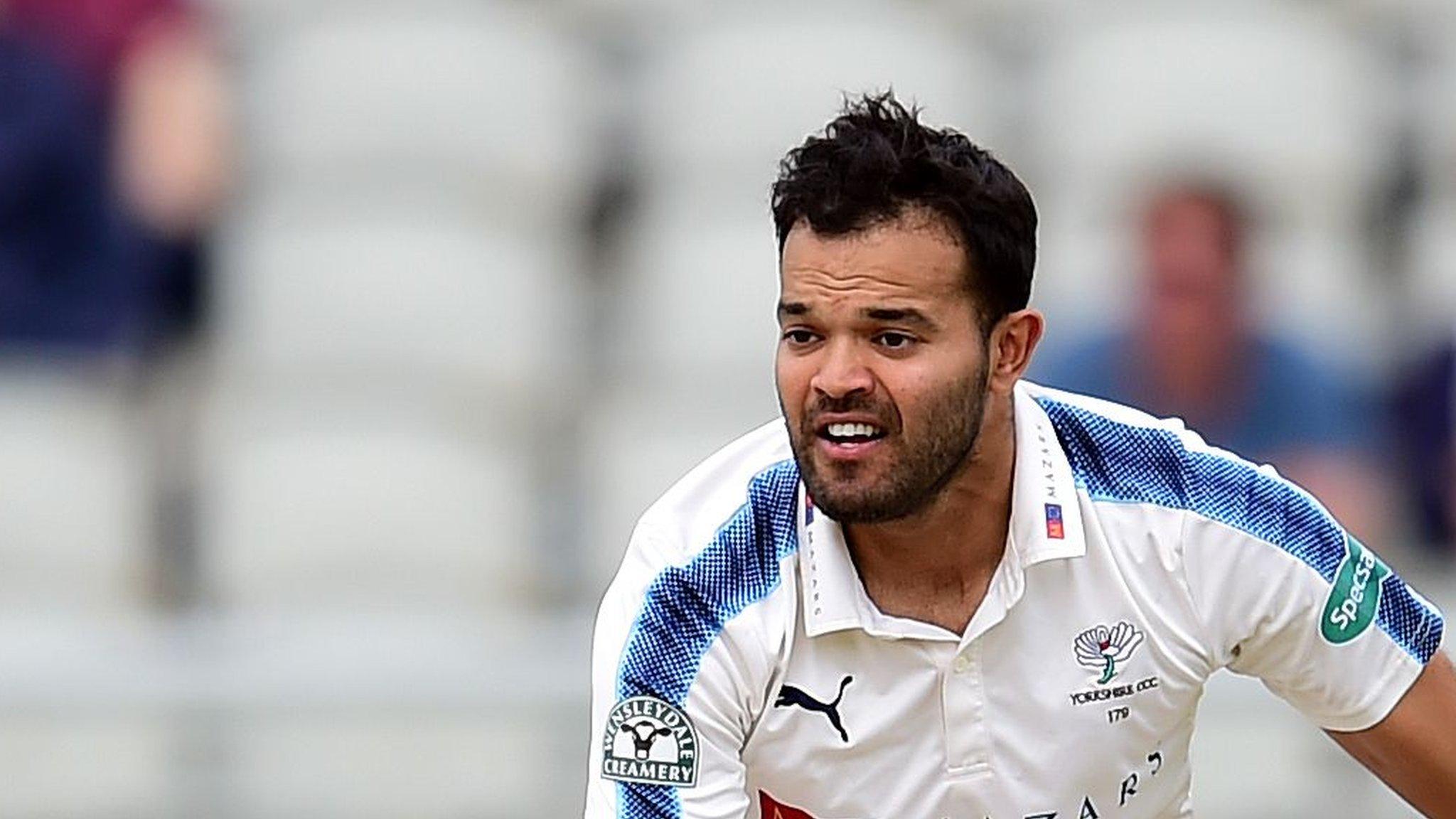Glamorgan racism accuser Mohsin Arif praises cricket club
- Published
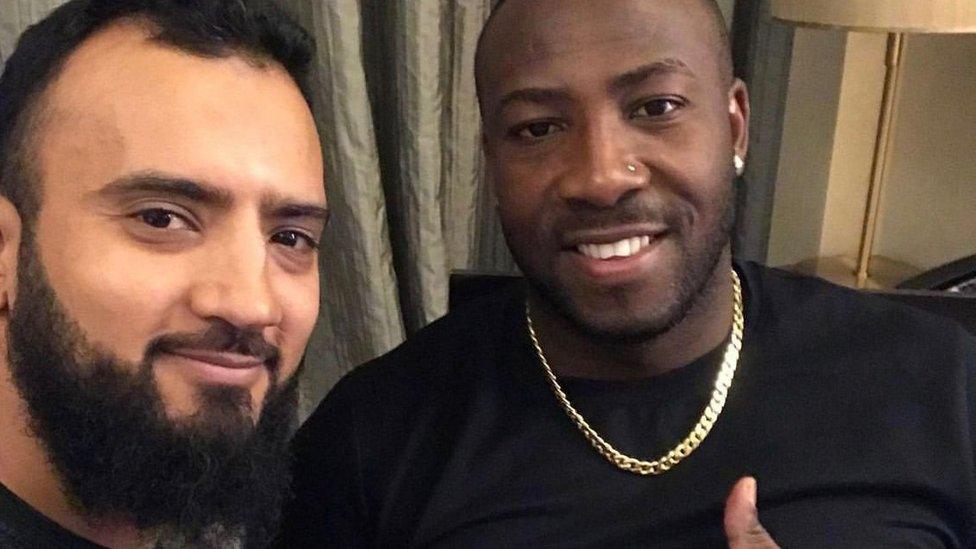
Mohsin Arif, pictured with West Indies star Andre Russell, says he was racially abused by a fellow player
A former Glamorgan cricketer who accused the county of institutional racism says he believes they are now "trying to knock down barriers".
Mohsin Arif, 36, met Glamorgan's chief executive Hugh Morris to discuss his experiences.
Last year, Mr Arif said in a Telegraph article that there was preferential treatment to white players.
He said Glamorgan is now trying to support cricketers from minority ethnic communities to play at the top level.
"I think I can definitely see [Glamorgan] trying to knock down barriers, and in Welsh cricket as well," said Mr Arif, who has recently returned to Wales after working in Dubai as a professional cricket coach.
"Hugh Morris reached out and said that he would like to have a chat about it."
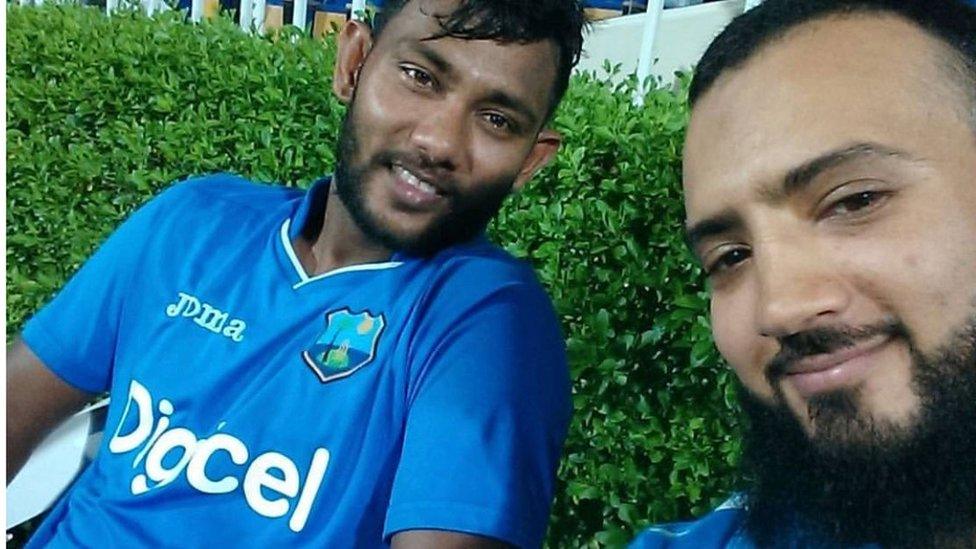
Mohsin Arif with West Indies player Devendra Bishoo
Mr Arif said Mr Morris was a "good listener," who "understood exactly where I was coming from and he didn't try to justify anything".
"And he did say they could try to improve relations with the BAME [black, Asian and minority ethnic] community and learn from me and my experiences, and others'," he added.
Mr Arif, from Cardiff, claimed he was not given the same opportunities as other players when he was picked for Glamorgan's second team in 2005.
Mr Arif said the county created a culture where non-white players were not encouraged to feel part of the set-up. He has also accused a former Glamorgan player of racially abusing him during a league game.
He believes education is the key to improving the situation, helping coaches and players to learn more about different cultures.
"They probably weren't used to having somebody who is a Muslim as part of that environment," Mr Arif said.
"They didn't know culturally where I came from, or my upbringing, which was very conservative, so very different to most people's upbringing in south Wales.
"I think where it broke down was that communication. They didn't really want to get to know me. I felt if they got to know me, they would have realised that I'm no different to anybody else."
Mr Arif said, as a practising Muslim, he would make sure he prayed when it was time for prayers while travelling, and refused to drink alcohol or be around it.
"They seemed to take it the wrong way, thinking 'he doesn't want anything to do with us and maybe he is ignoring us on purpose'," he said.
"It was something that I was probably too shy to speak about because when you're comfortable in an environment, you can speak about it a bit more."
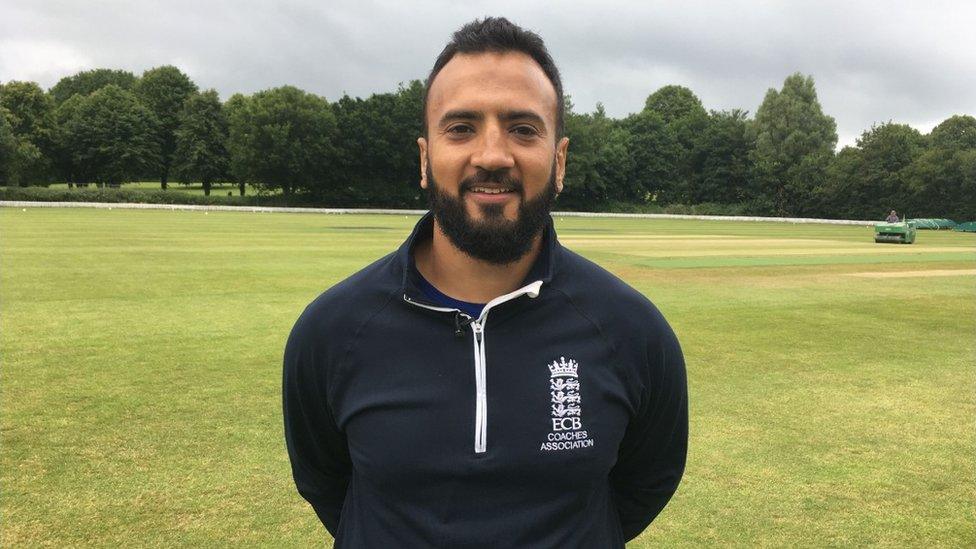
Mohsin Arif believes Glamorgan are making efforts to tackle racism
Current players Kiran Carlson and Prem Sisodiya are the first Welsh-born Asian cricketers to play first-team matches for the club.
Almost two-thirds of the 600 cricketers who play in the Cardiff Midweek Cricket League are British-Asian.
Glamorgan say they are addressing the concerns raised by Mohsin Arif and others to ensure the club is diverse and inclusive.
Two British Asian directors have been appointed to the club's board, and a working group has been set up to improve the club's connections with minority ethnic communities.
The club is also asking people to respond to an online survey which seeks to "understand the lived experiences of people from diverse backgrounds and ethnicities and their interaction with the club".

Glamorgan play cricket at their Sophia Gardens ground in Cardiff
Players including England batsman Michael Carberry and former England under-19 captain Azeem Rafiq, and two umpires, John Holder and Ismail Dawood, have also have spoken about their experiences of racism in the game.
And last month, England fast bowler Ollie Robinson was suspended by the ECB from all international cricket pending an investigation into offensive tweets he published as a teenager.
Some, such as Mr Carberry, believe Robinson's international career should be over, but Mr Arif thinks the England and Wales Cricket Board should focus on education, rather than punishment.
"He [Mr Robinson] is human. He made a mistake. He put his hands up and said: 'I'm sorry'," Mr Arif reflected.
"It was childish and immature but I feel that he should be given an opportunity to prove himself.
"I do not believe that he should lose his contract because that is life-changing. We are very quick to judge, but we're very slow on forgiveness.
"It happened 10 years ago and I am sure he has changed and I am sure he has matured, like we all do."
- Attribution
- Published30 September 2020

- Attribution
- Published6 June 2021
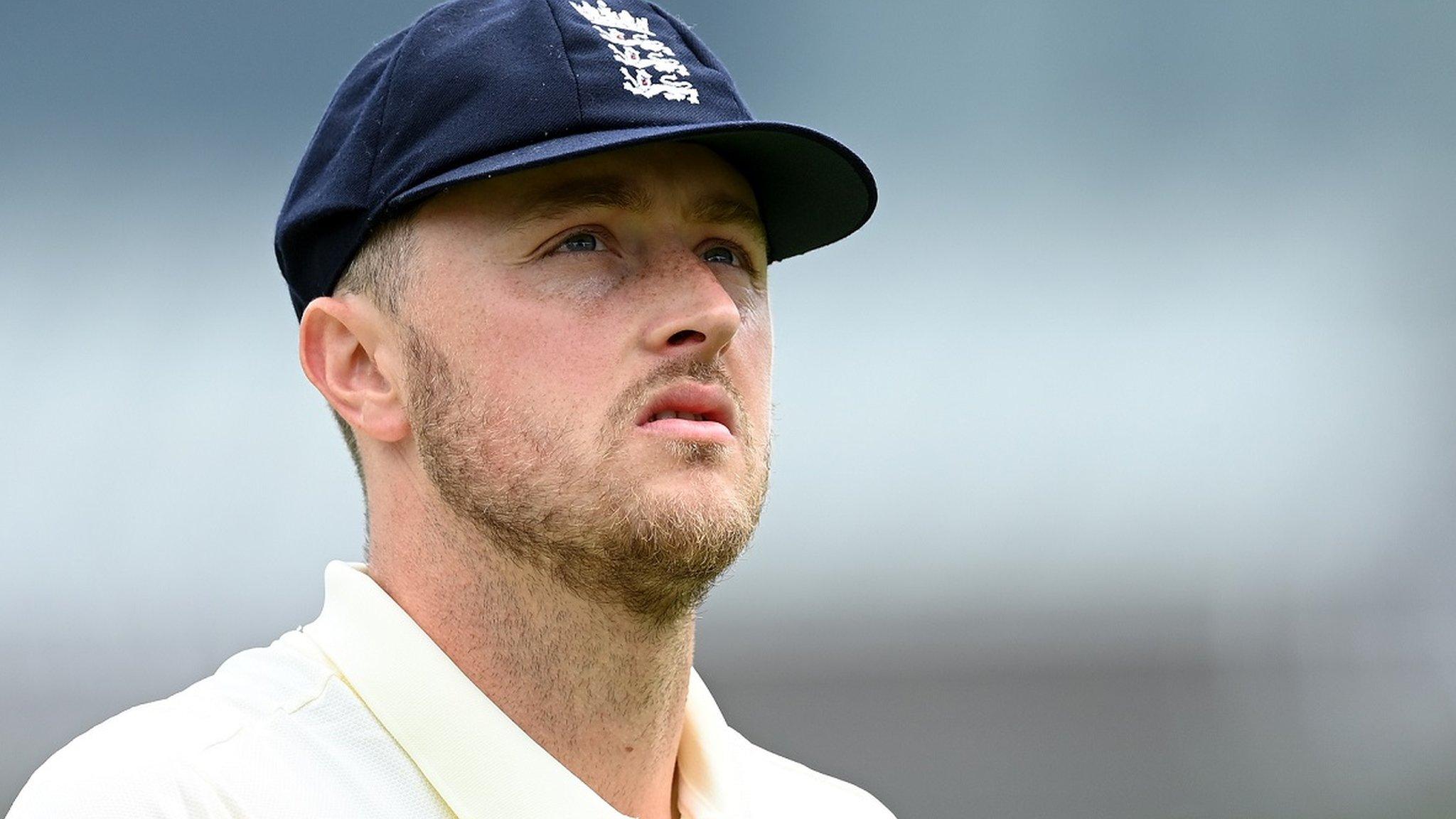
- Attribution
- Published3 September 2020
